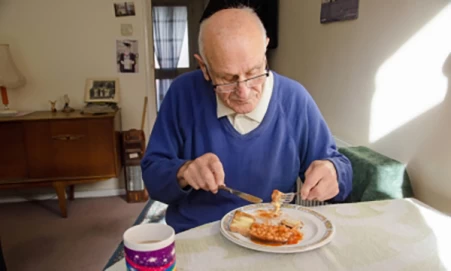An overview of appetite decline and management in older people

Course
Exclusive quality-assured course.

Available to RCNi Plus subscribers
Applicable for any nurse with an RCNi subscription
Learn about the consequences of poor appetite - a common problem in older people, and the strategies that can be used to promote better appetite and increase food intake in these patients.
Who is this resource for?
This resource is aimed at nurses and nursing support workers across all settings and levels of practice, including students of health, social work and care professions.
Authors
Downloaded content date
PDF created on: 2 Jan 2026.
Downloaded from: https://rcnlearn.rcn.org.uk/Search/483-Anoverviewofappetitedeclineandmanagemen.
Please check: https://rcnlearn.rcn.org.uk for a more up-to-date version of this content.
 ;
; ;
; ;
; ;
;